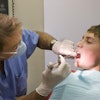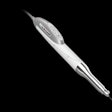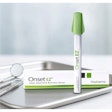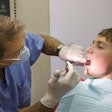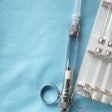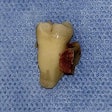
So what do you do when patients sit in the chair and refuse any kind of anesthetic during their dental procedure?
While it is a rarity, it does happen, as was illustrated in a recent DrBicuspid.com article in which actor Billy Boyd of the "Lord of the Rings" trilogy said he refused anesthetic during his emergency dental visit. Boyd said that he refused anesthetic because it would interfere with scenes he was scheduled to film that day for the movie. Boyd recounted that he sweat so profusely during the procedure that his prosthetic Hobbit feet came unglued.
With that in mind, I recently asked Dr. Sheri Doniger, a long-term practicing dentist in the Chicago suburbs, about her thoughts on patients who refuse anesthesia during appointments. She admitted that the request made her job more stressful while trying to accommodate the patient's desires.
"As a dentist, you know when you go through the enamel and then you hit the dentin, that all those little nerve endings are going straight from the dentin into the pulp chamber and that there's going to be a change in pressure and so much more," Dr. Doniger said. "We know when something is going to be uncomfortable. I usually wind up going slower and asking, 'Are you OK? Are you OK? Are you OK? Are you feeling this?'
"Some people don't want to have drugs in their system, and they'd rather go through the discomfort for five minutes, or whatever it is, and be done with it. I know they believe the short time of discomfort is better than being numb on the lower for three hours or so."
Knowing there is pain involved for the patient and added stress involved for her, I asked Dr. Doniger if she ever tried to talk the patient out of their decision to skip the numbing agent.
"Personally, I would not talk anybody out of anything," she said. "If somebody had a huge abscess, a cracked tooth, or needed to have a tooth extracted, I would certainly attempt to talk them out of refusing local anesthetic. But I would never talk somebody out of anesthetic for what I might consider to be a minor procedure."
What is your opinion or belief? Would you proceed with a procedure without anesthesia? Would you try to talk a patient into it? What would your approach be? Tell us in the Comments below.



